
Artwork Archive—along with RedLine and the distinguished jury—are delighted to announce the ten recipients of the Art Business Accelerator Grant.
The Artwork Archive Art Business Accelerator grant enables artists to create new work, purchase materials, and pay for studio rent or personal expenses so that they can continue to make a positive impact in their communities. The grant distributes unrestricted funds to ten artists that work to address critical social, political and environmental issues in their role as citizen artists.
Each recipient is awarded an unrestricted cash prize of $2,500, a free lifetime subscription to Artwork Archive, and access to mentorship and resources designed to empower each artist as they continue to grow their careers and drive positive change throughout their local communities and society at large.
The grant received over 3,300 applications from artists based in more than 100 countries. The ten winners were selected by a jury consisting of five renowned artists: Josely Carvalho, Thomas Evans a.k.a. Detour, David Kassan, Charly Palmer, and Joan Snyder.
All Art Business Accelerator Grant applicants will also receive six weeks of career-building resources to increase their business skills, economic proficiency, marketing knowledge and more.
Listed in alphabetical order, the ten recipients of the Artwork Archive Art Business Accelerator Grant are:

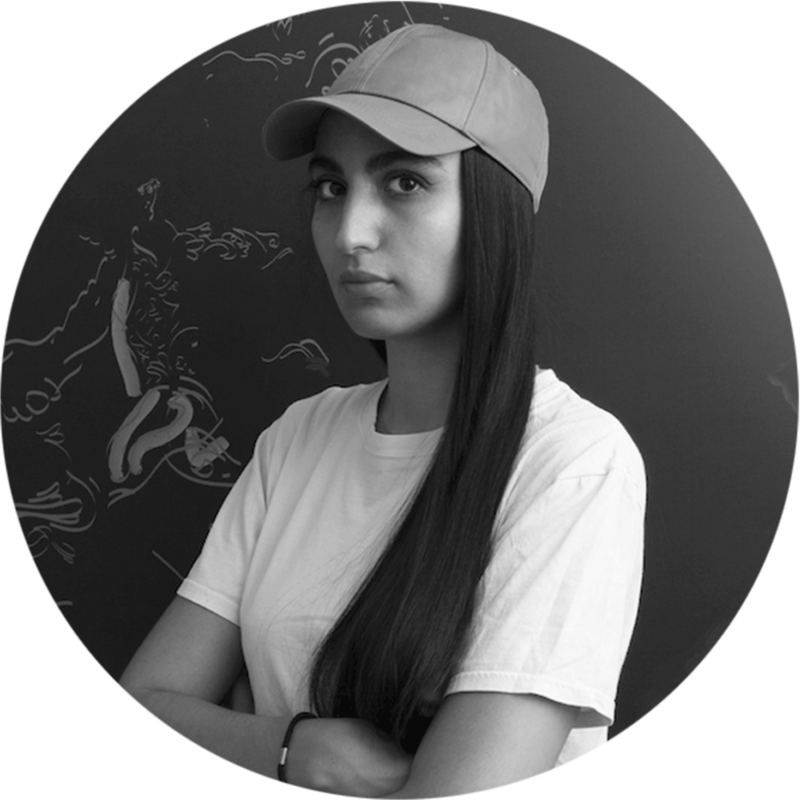 |
Monia Ben Hamouda (Lives and works in Milan, Italy) Monia’s work ranges from paintings to sculptural installations, which seek to reveal the depths to which we are all marked — and contaminated — by the psychomental lineage of our ancestors. Incorporating the cultural and religious symbols of her Muslim family, Monia’s art speaks to ancestral rituals, psychological landscapes, and notions of both stasis and transformation. Her work has been exhibited in cities including London, Istanbul, Hong Kong, Seoul, and San Francisco. |

 |
Jasmine Best (Lives and works in Greensboro, North Carolina, USA) Jasmine’s mixed-media work gathers narratives — culled from her personal memories of her Carolinian family and childhood — to create dialogues around the Black female identity in the south and in predominantly white spaces. |

 |
Samar Hejazi (Lives and works in Toronto, Canada) Sarmar creates delicately embroidered textile pieces that channel her Palestinian heritage through the “historical choreography found in craft practices,” while simultaneously touching on the conceptual paradigms of social constructivism, ethnology, and the ethos of modernity. |

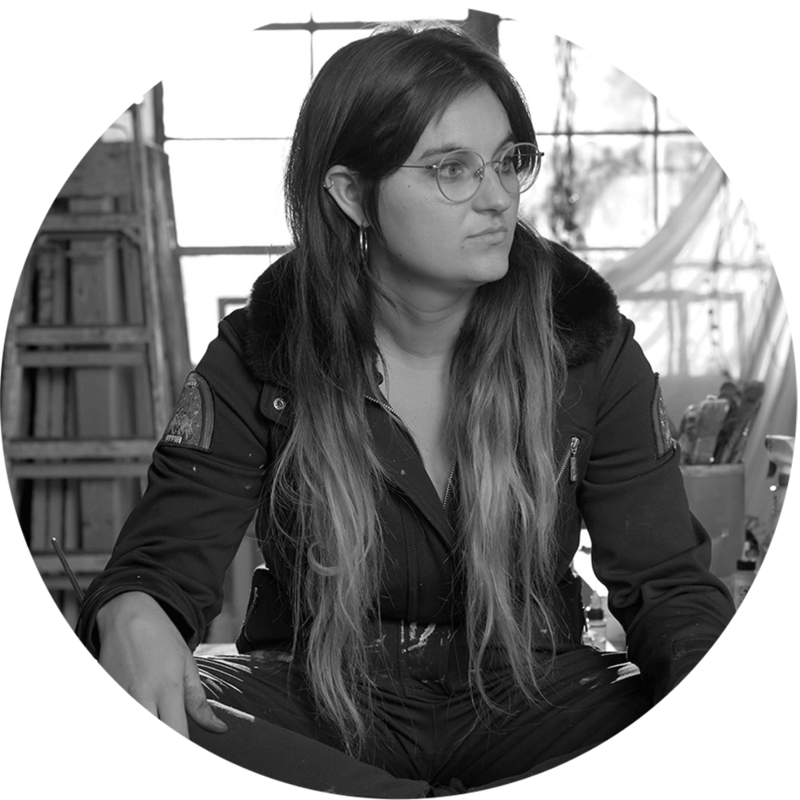 |
Lynnea Holland-Weiss (Lives and works in Cleveland, Ohio, USA.) Lynnea’s large-scale paintings deal with human connection, somatic memory and sensation. Her work addresses processes of healing, comforting and mourning — human responses to trauma and grief that were upended during the pandemic. She is the recipient of the 2021 Hopper Prize and her work has been featured in New American Paintings (Midwest Issue No. 143). |

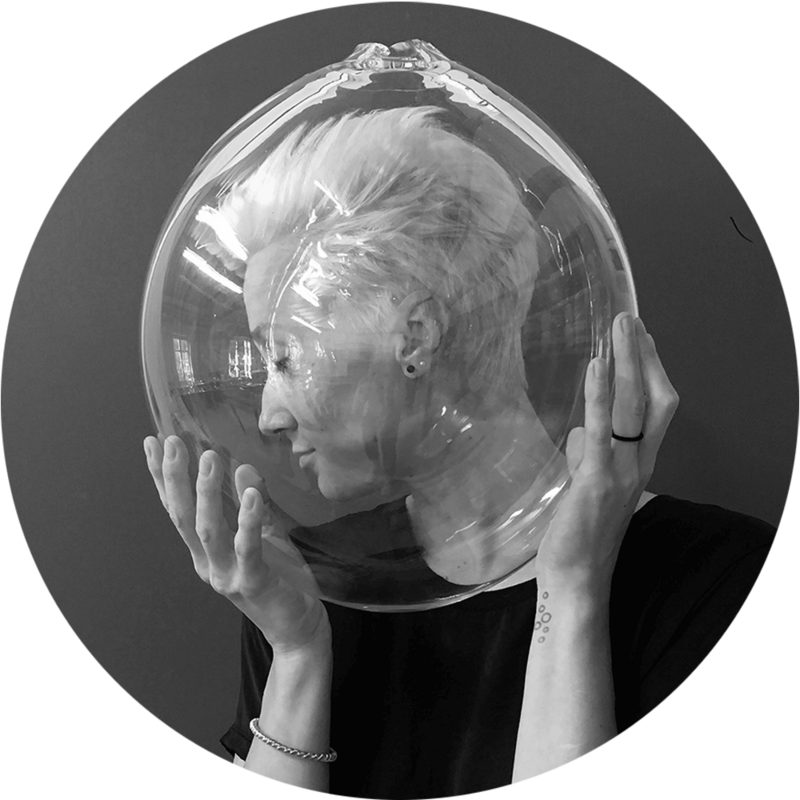 |
Anna Mlasowsky (Lives and works in Seattle, Washington, USA) Anna works with glass, a material both ancient and modern, which exists across a spectrum of physical states and can be experienced as solid, a fluid, as transparent or opaque, and as both unyieldingly hard yet precariously fragile. Born in East Germany, a country that “no longer exists,” Anna’s art exposes states of fluid uncertainty, physical extremes, and the hope for a society in which a multiplicity of realities can be accepted. |

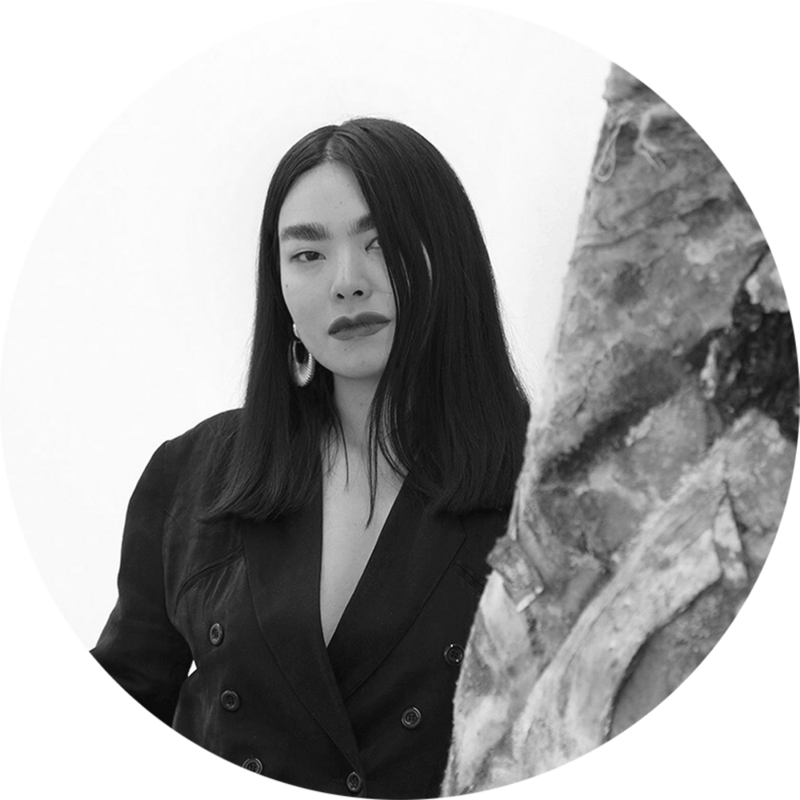 |
Tahmina Negmat (Lives and works in London, UK) Tahima’s art draws from embodied experience, collected materials, and stories taken from her childhood in Uzbekistan, adolescence in Russia, and adulthood in the UK. Her recent work incorporates terracotta pieces and found objects such as parachutes, sleeping bags, and bedsprings. Through the physical, unyielding weight of her artworks, she seeks to transcend her personal experience of temporality — constantly moving yet never arriving — which she describes as the immigrant’s experience. |

 |
Ramekon O’Arwisters (Lives and works in San Francisco, California, USA) Ramekon began quilting with his grandmother while growing up in the Jim Crow south during the Civil Rights Movement. Today, his sculptural work combines crochet, embellished lace, and other textiles with broken and discarded decorative pottery and other symbolic materials. Speaking to his own experiences as Black and queer, Ramekon’s art also channels universal themes such as desire, destruction, and the beauty that emanates from the act of creation. |

 |
Amy Ritter (Lives and works in Brooklyn, New York, USA) Amy’s work as a queer female artist is an exploration of her relationship to her physical self vis-à-vis mobile homes and their interior landscapes. Excavating memories of her experience of growing up in a mobile home community, her ongoing work of archiving these homes and neighborhoods manifests in immersive installations and site-specific public sculptures. |

 |
Carlie Trosclair (Lives and works in New Orleans, USA) Approached through a lens of reordering and discovery, Carlie’s site-responsive installations create new topographies and narratives that highlight the structural and decorative shifts encompassing a building's lifespan. Carlie has been awarded residencies at the Joan Mitchell Center (LA), Bemis MASS MoCA (MA), Oxbow (MI), and The Luminary Center for the Arts (MO), among others, and her work has been featured in publications such as Art in America, The New York Times, and Temporary Art Review. |

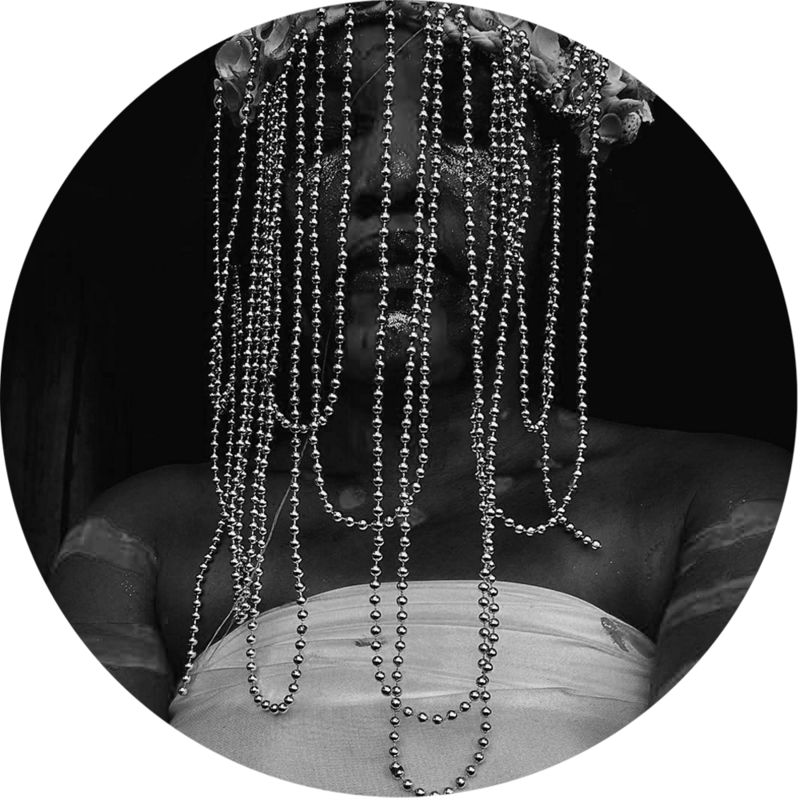 |
Victoria-Idongesit Udondian (Lives and works in Williamsville, New York, USA) Born in Nigeria, Victoria-Idongesit’s work questions notions of cultural identity and post-colonial positions. Her art is driven by her interest in textiles and the potential for clothing to shape identity, informed by the histories and tacit meanings embedded in everyday materials. Her work has been exhibited internationally, at venues including the inaugural Nigerian Pavilion at the 56th Venice Biennial in Italy; the Fisher Landau Centre for the Arts, New York; National Museum, Lagos and Lokoja; and the Whitworth Gallery in Manchester. |
LEARN MORE ABOUT THE JURORS
 |
Josely Carvalho is a multimedia artist, born in São Paulo, and maintains studios in Rio de Janeiro and New York. In the last four decades, her artwork embraces several mediums and seeks to highlight memory, identity, women issues, and social justice while consistently challenging the frontiers between artist and public and art and politics. Most recently, Josely Carvalho has exhibited in several museums in Brazil and is part of the Radical Women: Latin American Art, 1960-85 exhibition shown at the Hammer Museum in Los Angeles in 2017, and the Brooklyn Museum in New York City. She has been awarded numerous grants for her work, including the Pollock-Krasner Foundation Grant. Learn more. |
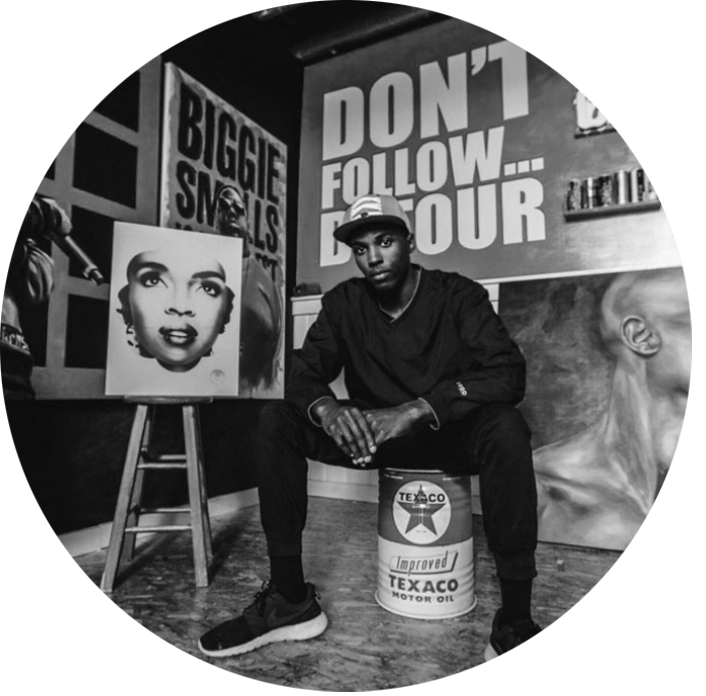 |
Thomas Evans a.k.a. Detour is an all-around creative specializing in large-scale public art, interactive visuals, portraiture, immersive spaces, and creative directing. With his ever-evolving approach to art, Detour’s focus is on expanding customary views of creativity and challenging fine-art paradigms. He is also the author of Be the Artist, a guide that helps artists enter the art world and navigate the nuances of becoming self-sufficient. Be the Artist is designed to help up-and-coming creatives with guidelines for scenarios that range from taking on commission work and conducting negotiations to dealing with rejection and improving your organization. Learn more. |
 |
David Kassan is an internationally recognized contemporary American painter whose work aesthetically captures humanity in its true form. As an artist, Kassan acts as an empathetic intermediary between the subject he portrays and the viewer. In “Facing Survival,” Kassan recorded the testimonies and intimate histories of Holocaust survivors for several years, culminating in over a dozen portraits capturing each subject’s spirit, pain and dignity. Learn more. |
 |
Charly Palmer is a teacher, mentor and fine artist known for complex compositions and his unique technique and style. As a part of the Black Lives Matter movement, Palmer was selected to do the July 2020 cover for the acclaimed Time Magazine for the "America Must Change" issue. Palmer was chosen to work on the cover based on his 20 years of experience painting on the subject of race. Learn more. |
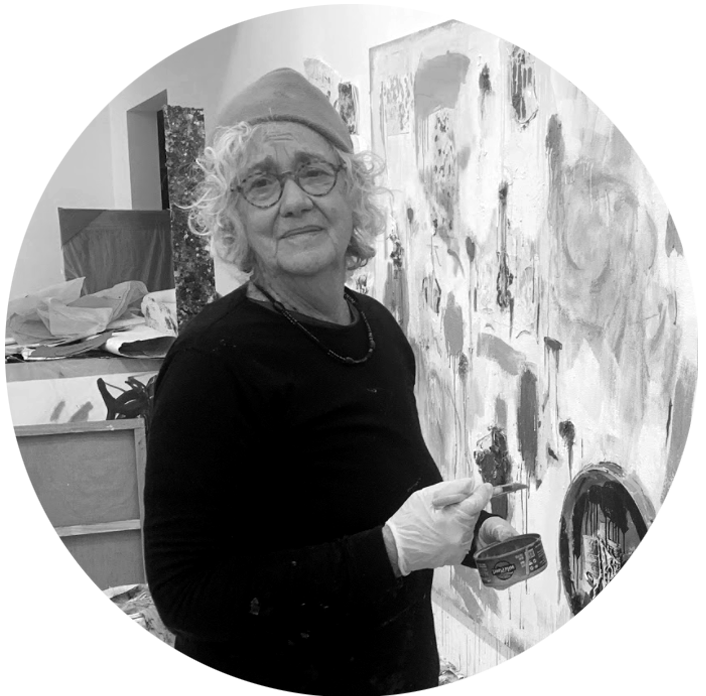 |
Joan Snyder’s impact on abstract art and materialistic exploration of painting has brought her widespread critical claim and institutional recognition. She made her breakthrough in the late 1960s with ‘stroke’ paintings such as Lines and Strokes (1969) and Symphony (1970). Snyder’s contribution at this moment of cultural dissent was a rebellion against the male-dominated abstract movements of Minimalism and Colour Field painting, both of which were perpetuating strict adherence to modernist principles. Learn more. |



